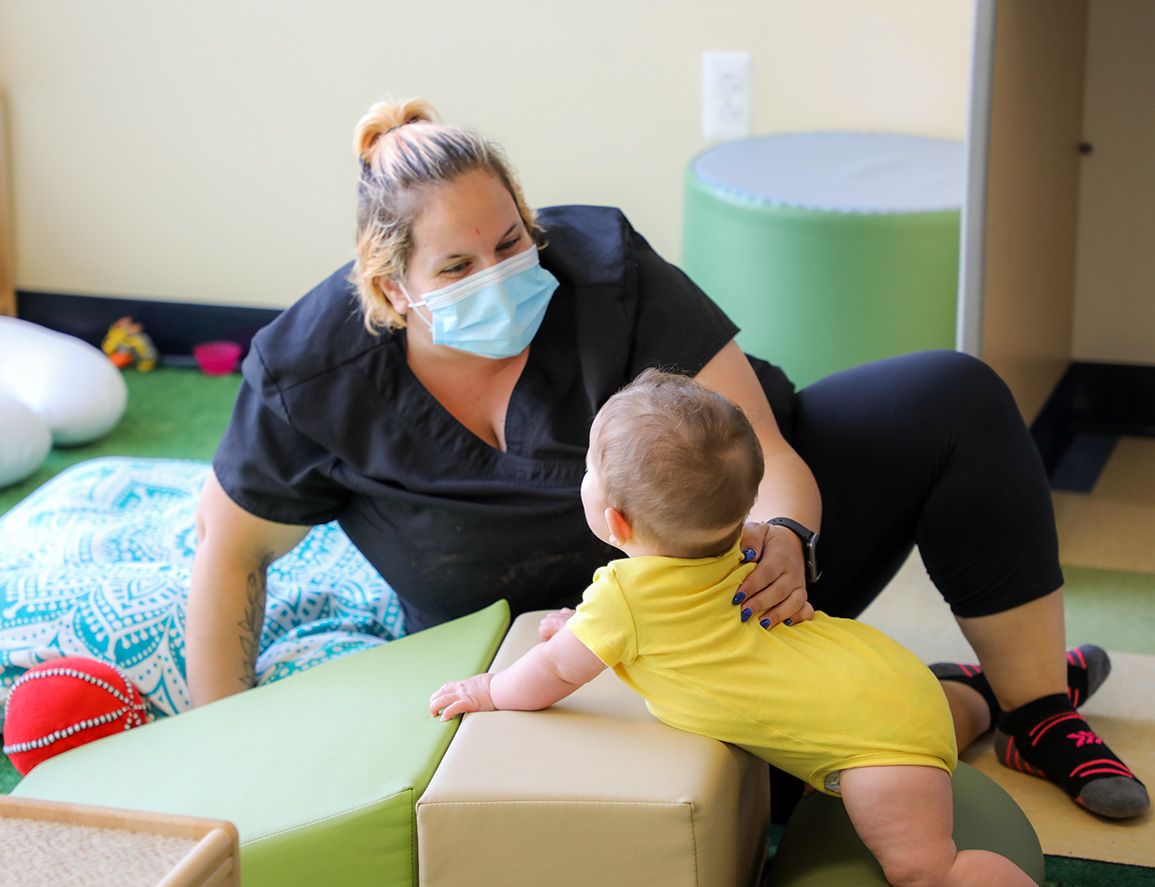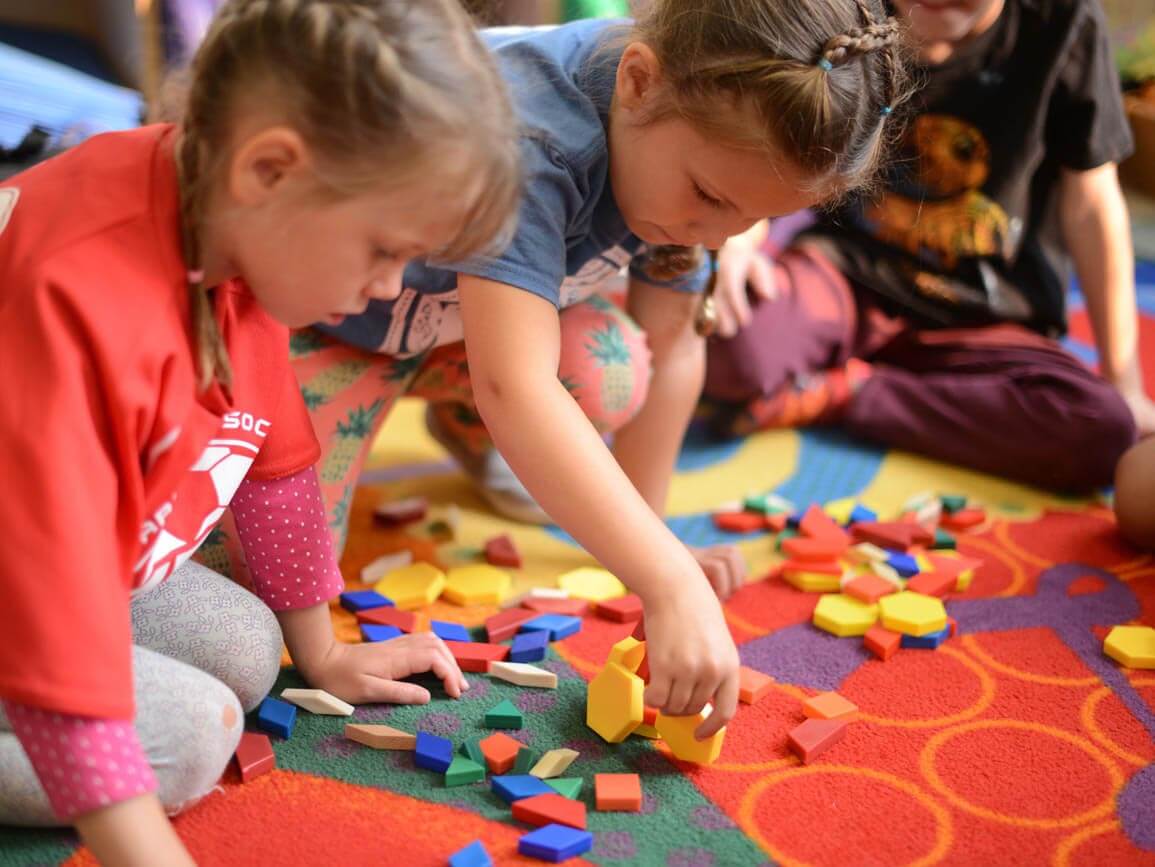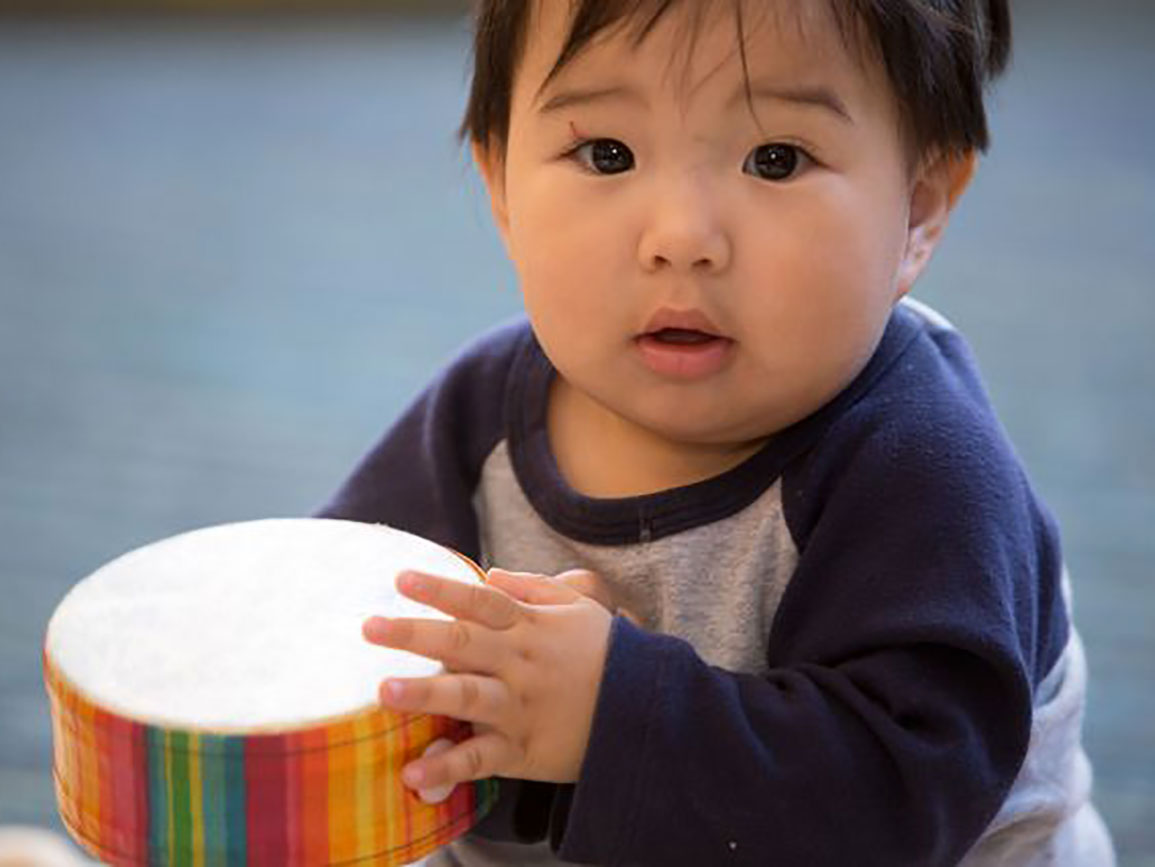Have you been singing to your baby since pregnancy? Or, are you just starting to introduce music in the nursery before nap time? Either way, you’re on the right track — music is great for your baby’s brain development. And when your baby is involved in actually making the music, it has even more value. How can you incorporate music into the day?
Here are six suggestions.
- Play music that YOU love. When you play music that you actually like, you’ll be more inclined to sing along, which will be even more engaging for your little one. You might assume that classical music is the only way to go, but not so. Babies aren’t picky when it comes to music — and the claim that listening to classical music makes babies smarter has been debunked. So play a variety of (appropriate) tunes — from classical and jazz to rock and pop — and throw in some of your favorites, too.
- Match sounds with movement. As you sing to your baby or listen to music, put some movement into it, too. Pick your baby up and dance around the kitchen, bounce to the beat around the nursery, move around outside, and rock to the rhythm. You can even gently clap your baby’s hands together and move his or her arms, legs, and feet along with the music. And if songs mention words such as high, low, in, out, big, or small, or describe an action (like Itsy Bitsy Spider and The Wheels on the Bus do), help your baby use hand and arm motions to act these things out.
- Go to a music class with your baby. Be sure to look for a class that will be small in size and full of movement. Together with other parents and infants, you and your little one will have the chance to explore different sounds and instruments. And learning about music will boost your baby’s social, language, and motor development, spark creativity, increase confidence, and more. Continue doing the activities you learned with your baby, even after the class is over, and build on them as your child gets older.
- Make music at home. Some of the best musical instruments might be hiding in your kitchen cabinets — don’t underestimate the power of pots, pans, and wooden spoons. You can also fill plastic containers with dried beans to create shakers, and you can use rattles and bells, too. Gather the family and create a kitchen band!
- Put music into daily activities. You don’t have to set aside a specific time of the day to focus on music. Instead, make it part of everyday activities. You’re probably familiar with the clean-up song; why not create something similar for bath time and getting dressed? Sing while you feed your baby and change diapers, and make getting in the car seat a musical experience, too.
- Find live performances. Going somewhere with your baby to listen to music can be a fun, easy way to get out of the house, and it’ll introduce your little one to so many new sounds, environments, and social situations. Start low-key with live music at the local library, bookstores, coffee shops, outdoor neighborhood festivals, and summer family concerts. If you and your baby enjoy these performances, see if the local symphony puts on kid-friendly concerts or head to a church sing-along.
Infant Music Activity
Discover how infants are learning about music in the Bright Horizons classroom.





